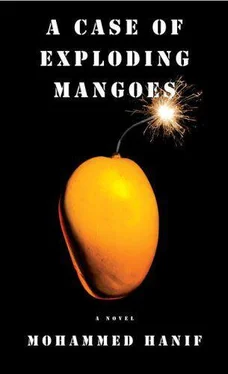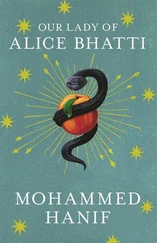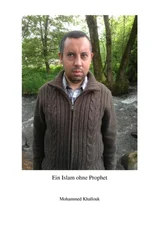Zainab heard a pair of wings flapping, heavier than the wings of the sparrows. She heard her sparrows flutter in a panic but they didn’t fly away. Some hovered in the air, others moved away from her. Her hand stopped throwing the crumbs for a moment, feeling protective towards her sparrows, not wanting to give to the crow what was theirs. Then she remembered a crow from her childhood who had kept her company on many a dark day. Another bad omen, the villagers had said, but it was good company for her and she would always save some bread for him. Could it be the same crow? Her hands started to break the jail bread and throw it out again. What if the crow was really hungry? All the prisoners and even some of the jail staff, she knew, fed these sparrows.
She heard the jailer’s footsteps coming towards her. She could tell from the way she walked that the jailer was bringing bad news. She tried to ignore the guilt in the approaching footsteps and continued to feed the bird. She could tell that the crow had taken over the area. The sparrows had flown away except for two who were still skirting around the circle claimed by the crow, rushing in to pick on a piece when the crow’s back was turned and dashing back to a safe distance. She could feel on her fingertips that their wings were poised for escape. She could also tell that it was more of a game they were playing, to see, if one distracted the crow, how close the other one could get.
The jailer’s shadow blocked the sunlight. Zainab could tell from the smell of the jailer’s sweat that she was in trouble. She was breathing heavily, shifting her weight on her feet, pretending that she wasn’t there.
The news was definitely bad.
What bad news could you bring to a prisoner condemned to death? She had no hopes about the clemency appeal that her lawyer had filed on her behalf. The other prisoners in her cell had discussed it. They knew that although the General had changed his mind many times over many things, one thing he never did was miss a chance to turn down the mercy plea in a death-sentence case. Something to do with someone called Bhutto who was the ruler before Zia. Zainab knew that Bhutto was hanged and not stoned to death. She didn’t really know what his crime was either. Zainab wasn’t really expecting her sentence to be commuted, so maybe the jailer had received her black warrants and was worried about how to arrange a stoning. Zainab felt bad for the jailer; why did such a nice, competent woman have to go through such trials?
She heard the crow flap its wings urgently, but instead of flying away it settled down again, probably having chased the last sparrow away.
“Zainab, your picture has been published in a newspaper,” the jailer said. Zainab knew the jailer was avoiding the subject by telling her about the newspaper instead of giving her the news about her black warrant. “You look good in the picture with your sunglasses.”
Zainab threw the last bit of bread, hoping to hit the crow on its head. She missed.
“They are going to transfer you to another prison. Because of that picture and the interview you gave.”
Zainab remembered the interview. Her lawyer had read out a few questions to her and she had repeated the same story that she had told at the district court, at the High Court, in the appeal against her death sentence, the same story she had told her fellow prisoners, over and over again without adding or omitting anything despite her lawyer’s best efforts.
“Your picture was printed in America. Apparently the orders have come from the very top to take you to a place where you can’t give interviews.”
Zainab didn’t know much about interviews or places from where you could or could not give interviews, she had only told them what had happened.
“It was dark but they had torches. There were three of them. There might have been another one outside the door. They smelled of car petrol, their hands were soft so they weren’t peasants. They tied my hands, they hit me when I asked them to let me go in their mothers’, sisters’ names. They were animals.”
“But I like it here,” she told the jailer. “My cell mate is due to give birth in two weeks. I have other friends here. I want to live here.”
Then she thought about what she had just said.
“I want to die here.”
“The orders have come from the President,” the jailer said, using a tone that she had never used with Zainab before, making it clear that it was final, even more final than her death sentence. Zainab also smelled fear in her voice and wondered whether the jailer would be punished as well.
And that thought, her having to leave her friends behind, and the idea that the jailer who gave her the sunglasses might be punished, overwhelmed Zainab for an instant and she did something that she had never done before. Blind Zainab who had listened in silence when a lecherous judge sentenced her to death, she who had not given her tormentors the satisfaction of a scream, she who had spent her life thanking God and forgiving His men for what they did to her: Zainab screamed and Zainab cursed.
“May worms eat the innards of the person who is taking me away from my home. May his children not see his face in death.”
The jailer felt relieved. She was irritated by Zainab’s reckless fortitude. She didn’t want her to go quietly.
It is a well-known fact that curses are the last resort of frustrated mothers and useless weapons for people who do not even have the courage or vocabulary to come up with proper invective for their enemies. It is also a well-known fact that most curses don’t work. The only way they can work is if a crow hears a curse from someone who has fed him to a full stomach and then carries it to the person who has been cursed. Crows, notoriously gluttonous, never feel as if their stomachs are full. They are also wayward creatures, their movement can never be predicted. They never bother carrying anything anywhere. Zainab didn’t even notice when the crow, having checked the ground for any leftover bits of bread, flapped its wings languidly and took off. When he was high above the jail, from where he could see other groups of sparrows doing their silly dance in front of the prisoners, he felt a western current in the air above him. He flew up, stopped napping his wings and two days later crossed the border into India where the wheat season starts early and the electric poles are safer.
Zainab packed her two pairs of clothes and waited for her own journey to begin. She was handcuffed and put in the back of a jeep. She noticed that there were no guards with her. Where was a handcuffed blind woman going to go? She prayed for an easy birth for her cell mate and forgot all about whom she had cursed and why.
The crow tucked his wings under his body and let the current carry him.
Crows may not have a conscience but their memory lasts for ninety years.
It was after the jeep carrying her stopped and didn’t move and nobody came to tell her to get off that Zainab thought she had arrived at the place she was being carried to. She took her clothes bundle, moved aside the canvas curtain and got off the jeep. She smelled a lot of smoke and a lot of men and for a moment she thought they had sent her to a men’s jail. She heard a passing siren and she kept walking, hoping to be led to a cell to live the rest of her life. The people who surrounded her were impatient. In jails people know how to stay still. After walking a few yards and avoiding stepping on anyone’s feet, she held the arm of a man who seemed still and patient and asked: “Where am I supposed to live?”
The man pressed a soggy two-rupee note in her hand and told her to wait like everyone else.
“I am not a beggar,” she said, but the man had already walked off.
Читать дальше












